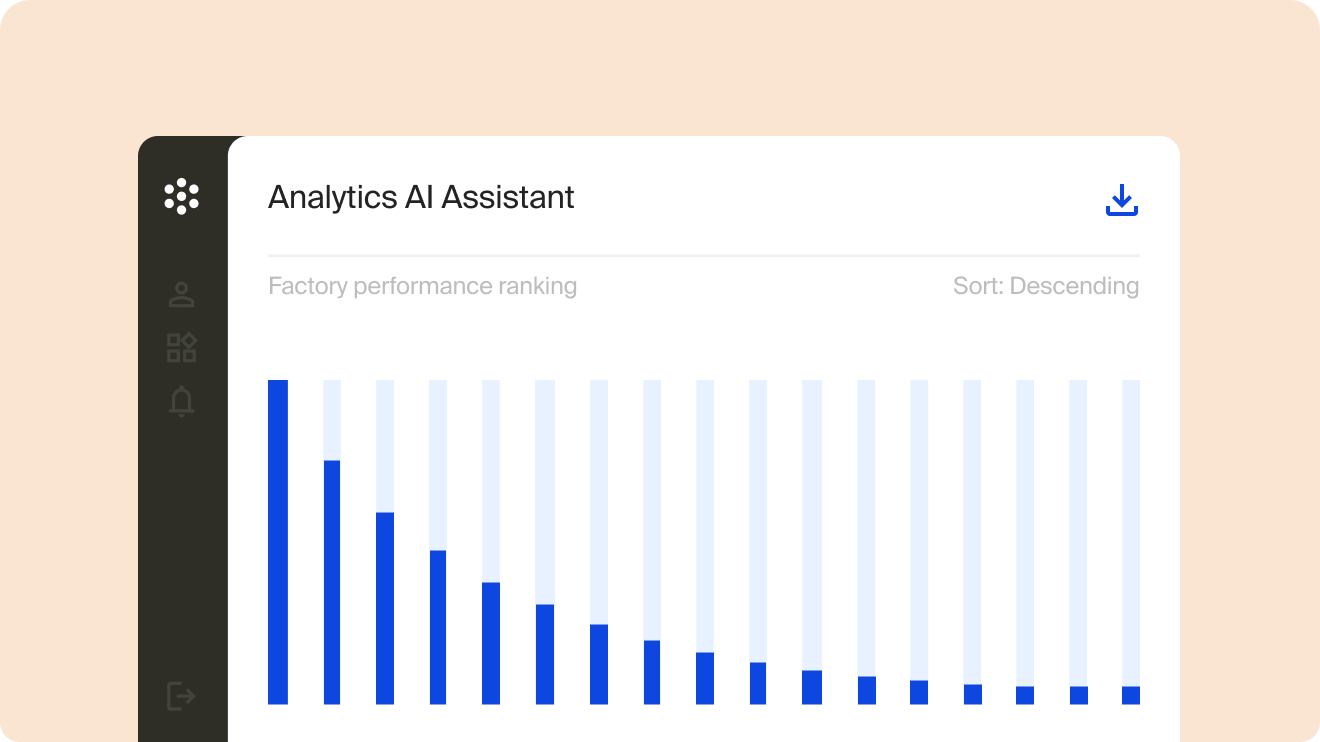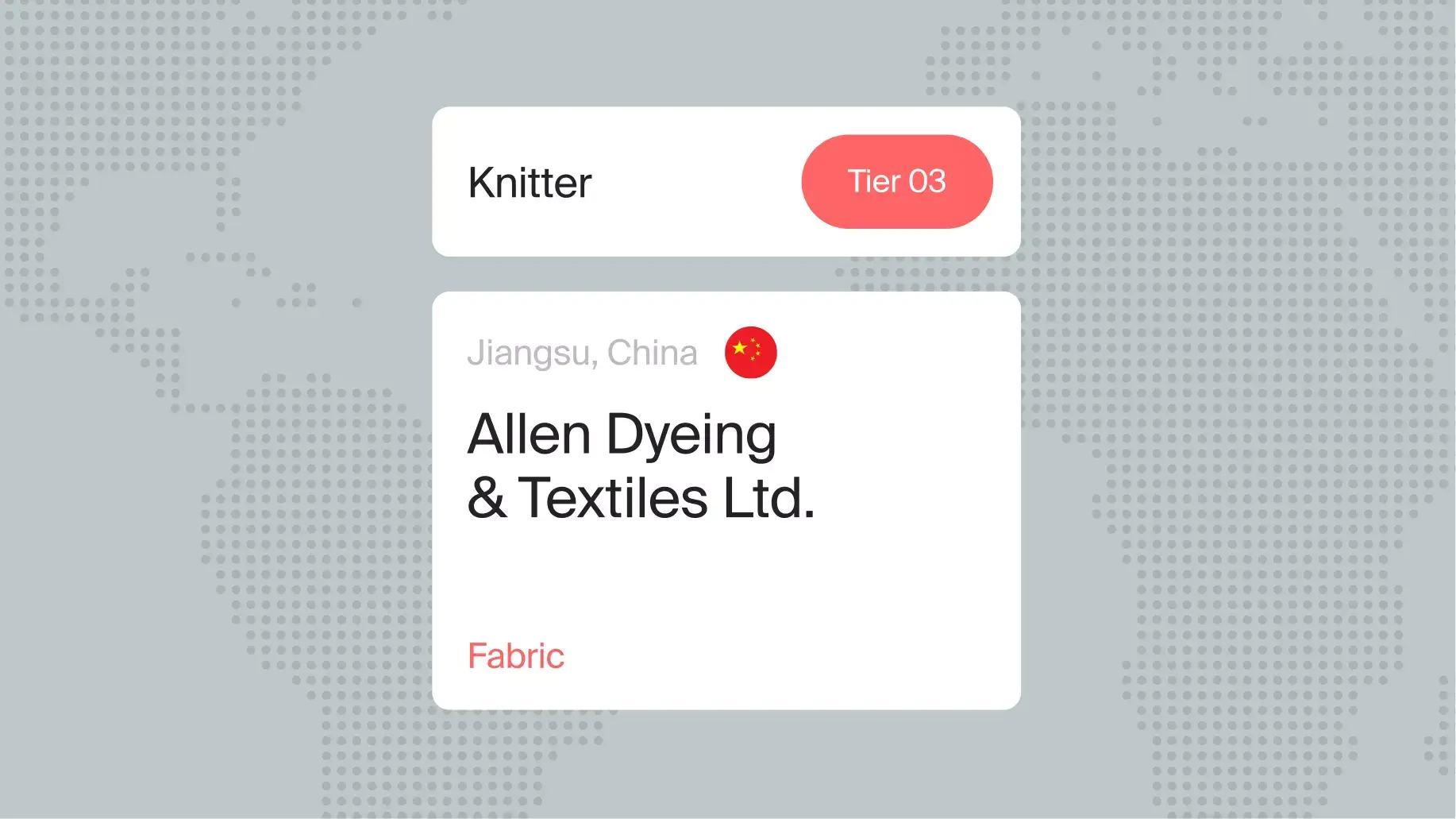Performance. Resilience. Intelligence.
Transform your production chain with Inspectorio's AI-powered supply chain management platform.
Leading Companies Choose Inspectorio
Turn Your Supply Chain Into a Competitive Advantage

Use innovative technologies like AI to unlock advanced analysis and insights of your connected supply chain data, enabling optimal decision making on issues that are critical to your success.
Put Future Technologies Into Action
Use innovative technologies like AI to unlock advanced analysis and insights of your connected supply chain data, enabling optimal decision making on issues that are critical to your success.

The Inspectorio Platform digitizes and connects your supply chain management processes within a single tool to break down silos across your organization, enable intelligent analysis of your entire ecosystem, and allow for scalability of your operations.
Connect Your Supply Chain Management Operations
The Inspectorio Platform digitizes and connects your supply chain management processes within a single tool to break down silos across your organization, enable intelligent analysis of your entire ecosystem, and allow for scalability of your operations.

Our platform empowers your team to achieve strategic sustainability and sourcing goals in the supply chain through data-driven insights, increased transparency, and operational efficiencies that lead to increases in essential supplier engagement.
Maximize Your Global Impact
Our platform empowers your team to achieve strategic sustainability and sourcing goals in the supply chain through data-driven insights, increased transparency, and operational efficiencies that lead to increases in essential supplier engagement.

Make decisions faster to reduce your production chain risks with advanced analytics and supply chain network management functionality in our intelligent platform.
Reduce Your Risks
Make decisions faster to reduce your production chain risks with advanced analytics and supply chain network management functionality in our intelligent platform.

Gain access to advanced analytics that pull data from across the entirety of your supply chain, enabling dynamic risk assessments and intelligent recommendations to improve ecosystem performance.
Drive Better Performance with Advanced Analytics
Gain access to advanced analytics that pull data from across the entirety of your supply chain, enabling dynamic risk assessments and intelligent recommendations to improve ecosystem performance.
Inspectorio’s Intelligent Supply Chain Management Platform
Trusted by 12,000+ brands, retailers and suppliers across the globe
G2
4.9 STARSCapterra
4.7 STARSGetApp
4.6 STARSSolutions For Your Industry
Apparel & Footwear
Food & Beverage
Home & Furniture
Multi-Category Retail
Outdoor & Sports
High-quality goods go beyond style and stitching to include responsibly sourced and sustainable materials. Inspectorio enables top apparel and footwear companies to measure, action, and improve performance across all these areas, building brand equity and meeting consumer expectations to ultimately drive revenue.
Learn more
Learn more

Learn More About Inspectorio


The time is now for a transparent and resilient supply chain.
Book a demo
Book a demo
Request a Demo
Become a partner
Subscribe to receive our newsletter
Sign Up to the Webinar
Contact Us
